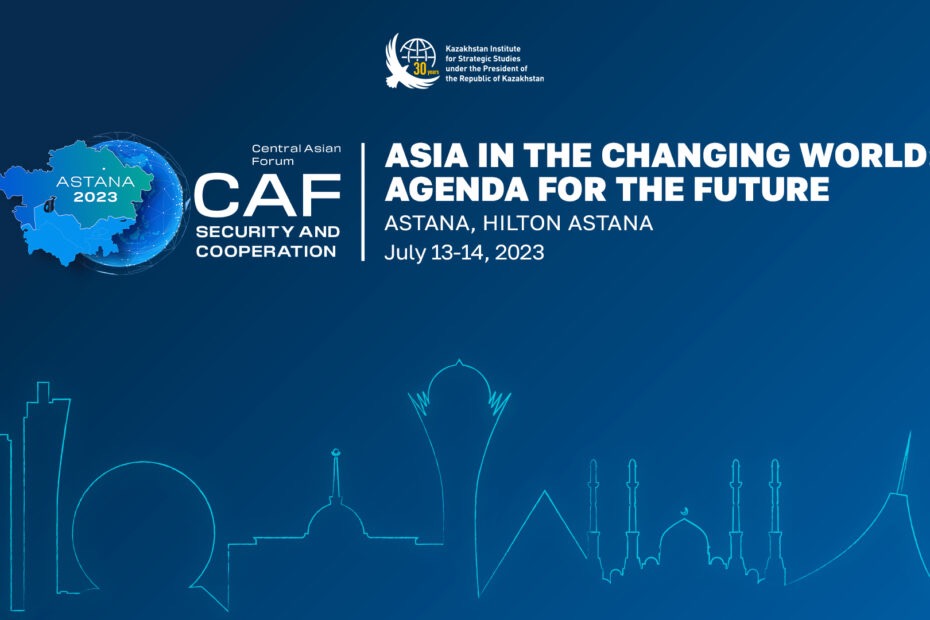The Kazakhstan Institute for Strategic Studies (KazISS) is set to host the Central Asian Security and Cooperation forum on July 13-14, bringing together influential thinkers and political scientists from 25 countries. The event, co-organized with the Kazakh Ministry of Foreign Affairs, aims to address the theme "Asia in the Changing World: Agenda for the Future" and explore pressing issues related to global security, regionalization, and technological advancements.

With Asia playing a pivotal role in the current political and geo-economic landscape, the forum seeks to foster dialogue and cooperation among nations grappling with complex geopolitical shifts. In an era of increasing globalization, regionalization initiatives are gaining traction, leading to intensified competition in shaping international relations and security frameworks.
The Central Asian Security and Cooperation Forum aspire to become an esteemed annual gathering alongside influential events such as the Munich Security Conference, the International Institute for Strategic Studies-Shangri La Dialogue, the Raisina Dialogue, the Primakov Readings, and the Astana International Forum.
By attracting experts from diverse backgrounds and representing countries like China, India, Japan, Russia, Singapore, Türkiye, and the United States, the forum aims to establish itself as a prominent platform for shaping policy discourse in Central Asia and beyond.
The forum will feature discussions on various topics crucial to Asia's future and global dynamics. These include Asia's global security challenges, the emerging interconnectedness of Eurasia and the Middle Corridor, the intensifying global competition for innovation, the role of new technologies, the impact of artificial intelligence, and the importance of human capital.
Distinguished speakers and panelists at the forum will include prominent figures from around the world. Among them are Under-Secretary-General of the United Nations Office of Counter-Terrorism, Vladimir Voronkov; European Union Special Representative for Central Asia, Terhi Hakala; Vice president of Japan's National Graduate Institute of Policy Studies, Narushige Michishita; Deputy Foreign Minister of Iran and Head of the Iranian Center for Political and International Studies, Mohammad Hassan Sheykholeslami; and Professor of Government at Georgetown University Qatar and Head of the Iranian Studies Unit at the Arab Center for Research and Policy Studies, Mehran Kamrava.
By bringing together experts and policymakers from diverse backgrounds, the Central Asian Security and Cooperation Forum aims to facilitate meaningful discussions, foster collaboration, and contribute to the formulation of policies that address the evolving challenges faced by Asia and the global community.
Comments (0)